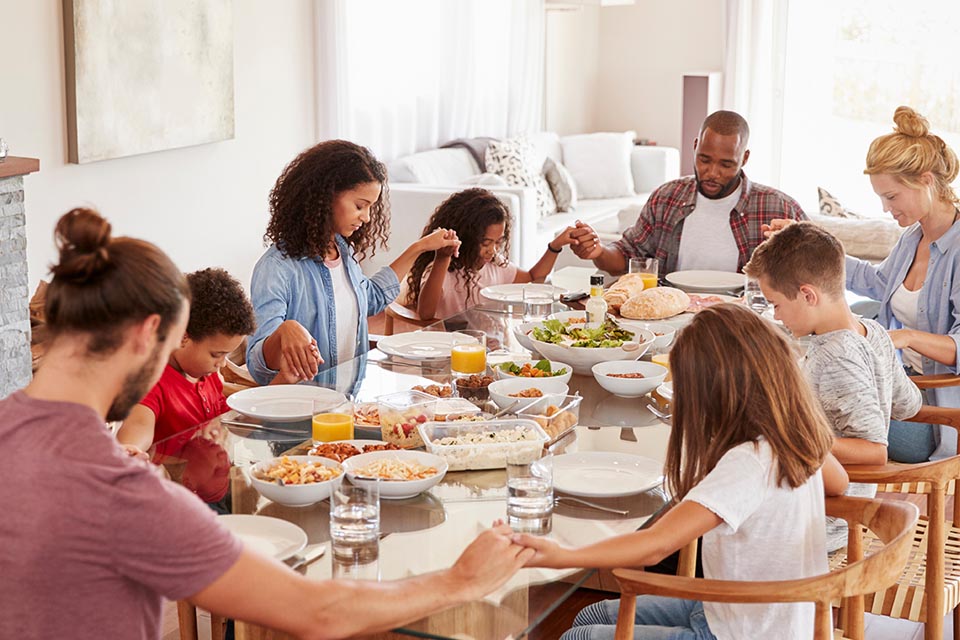Things did not work out with your ex. But regardless of how (or why) the relationship ended, it resulted in a beautiful gift: your child(ren). And whether you like it or not, your new roles as co-parents will forever bond you.
Co-parenting is shared parental responsibility between two parties who are no longer romantically involved but have a child or children together. Ideally, it is an amicable, respectable relationship with the child or children’s best interest at the center.
Why is being a co-parent so hard?
Let’s start by ripping the band-aid. Co-parenting happens due to “failed” relationships—a source of pain. You want the best for your child or children and know that having the other parent actively involved in their lives is a part of that, but having to parent with a person you’ve hurt or who has hurt you is no picnic, especially if you’re still sorting through emotions from the breakup.
Even after you overcome the emotional hurdle, no two parents are alike. Not being in the same household exasperates this fact. While you and your ex were together, it may have been easier to agree or disagree on things such as developing house rules and patterns for the kids to follow. However, co-parents typically do not live together, which means your child now has two sets of rules or ways of being to follow, depending on their parent.
Now that we’ve got that out the way…
Very Well Mind reports three co-parenting styles, Conflicted Co-Parenting, Cooperative Co-Parenting, and Parallel Co-Parenting.
Conflicted
It’s not hard to guess what conflicted co-parenting looks like. It’s the version we often see, with high levels of disrespect, tension, and overall discomfort for everyone involved, particularly the child or children. Research shows that conflicted co-parenting can increase children’s risk of experiencing behavioral problems as well as mental health issues such as depression, anxiety, and psychological distress.
Cooperative
The cooperative model is just what it says: cooperative. Parents work together, equally sharing parental responsibilities and ensuring the child or children spend adequate time with both parents. They coordinate schedules and routines and are supportive of both parental environments. Cooperative co-parenting offers the children a consistency similar to what would be present if their parents were still together and all family members were in one household.
Parallel
The parallel co-parenting style says, “You go your way, and I’ll go mine.” The parental parties run two households with little to no overlap or communication. The parents are seemingly active in the child or children’s lives but have little interaction or consideration for each other. There are usually few conflicts because the parents have very little interaction.
How to make co-parenting easier
Your role as co-parent may never be breezy, but it can get easier. Warning: Another band-aid rip is coming. The first step to fostering a better co-parenting relationship is to heal. Marriage and family therapist Dr. Juliana Morris said, “if one or both parents have not done the work to move on from the past and into the next chapter, you will bring the same hurt into the co-parenting relationship.”
Once you heal, you’ll be quicker to set your feelings aside, as HelpGuide recommends. Your feelings don’t have to dictate your behavior. Instead, let what’s best for your kids—you working cooperatively with the other parent—motivate your actions.
Oprah Daily has a few more strategies to manage co-parenting successfully. They include:
- Remembering the good times shared with your ex and some of their better qualities
- Be flexible, even when it’s inconvenient
- Be accessible to your co-parent
- Never badmouth your ex (whether in front of the kids or not)
- Don’t ignore a co-parent’s birthday or other memorable occasions and holidays for them
- Leave kids out of adult conversations
- Find a co-parenting support group
How can I communicate better as a co-parent?
Healthy communication is a massive step toward a successful co-parenting relationship. Getting on the same page with your co-parent regarding how you communicate and when will lessen the sting during your time together. Remember, the romantic relationship ended, but the parental one did not. Healthy communication is the secret sauce of successful co-parenting.
If you’re serious about improving communication with your co-parent, Family Law Attorneys Farzad and Ochoa offer the following tips to parents:
👉Practice a cooperative approach.
- Don’t make things more complicated than they have to be. If the pick-up time needs to shift 30 minutes this week, grit your teeth and deal.
👉 Refrain from disrespecting each other.
- Always.
👉 Provide necessary parenting information.
- Withholding necessary information from your co-parent is immature. If your kids get out of school early on your co-parent’s pick-up day but you didn’t tell them about the new time, it could put your children’s well-being at risk by being unsupervised or worse.
👉 Make an effort to stay on the same page.
- Again, grit your teeth if you have to, and try to work together.
👉 Explore co-parenting communication options.
- Do phone calls work best over text messages?
- Are emails the best approach if the relationship is primarily business-like?.
👉 Consult with an experienced child custody attorney.
👉 Utilize co-parenting templates
👉 Seek professional support.
- Counselor, attorney, therapist, etc.
👉 Protect your child’s happiness.
- Work out your feelings elsewhere. The child or children’s best interests should always be the center of co-parenting relationships.
What are the benefits of a healthy co-parenting relationship?
Your child or children don’t have to miss out on a healthy upbringing when intentional, cooperative co-parenting is present. Children feel more secure, recognize consistency, understand problem-solving, and are mentally and emotionally healthier when their parents master co-parenting. At the end of the day, your kids should realize that they are more important than the conflict that ended your relationship—and understand that your love for them will prevail despite changing circumstances.
Parents who are no longer together should aim to strengthen their co-parenting relationship and communication. Managing their emotions and keeping the child’s best interest front and center will ultimately lead to the best outcomes for all parties involved. For more ways parental empowerment strategizes, check out The Parent Zone.







